Review: WAITING FOR GODOT at Barrington Stage Company
“A Tragic Comedy in Two Acts”
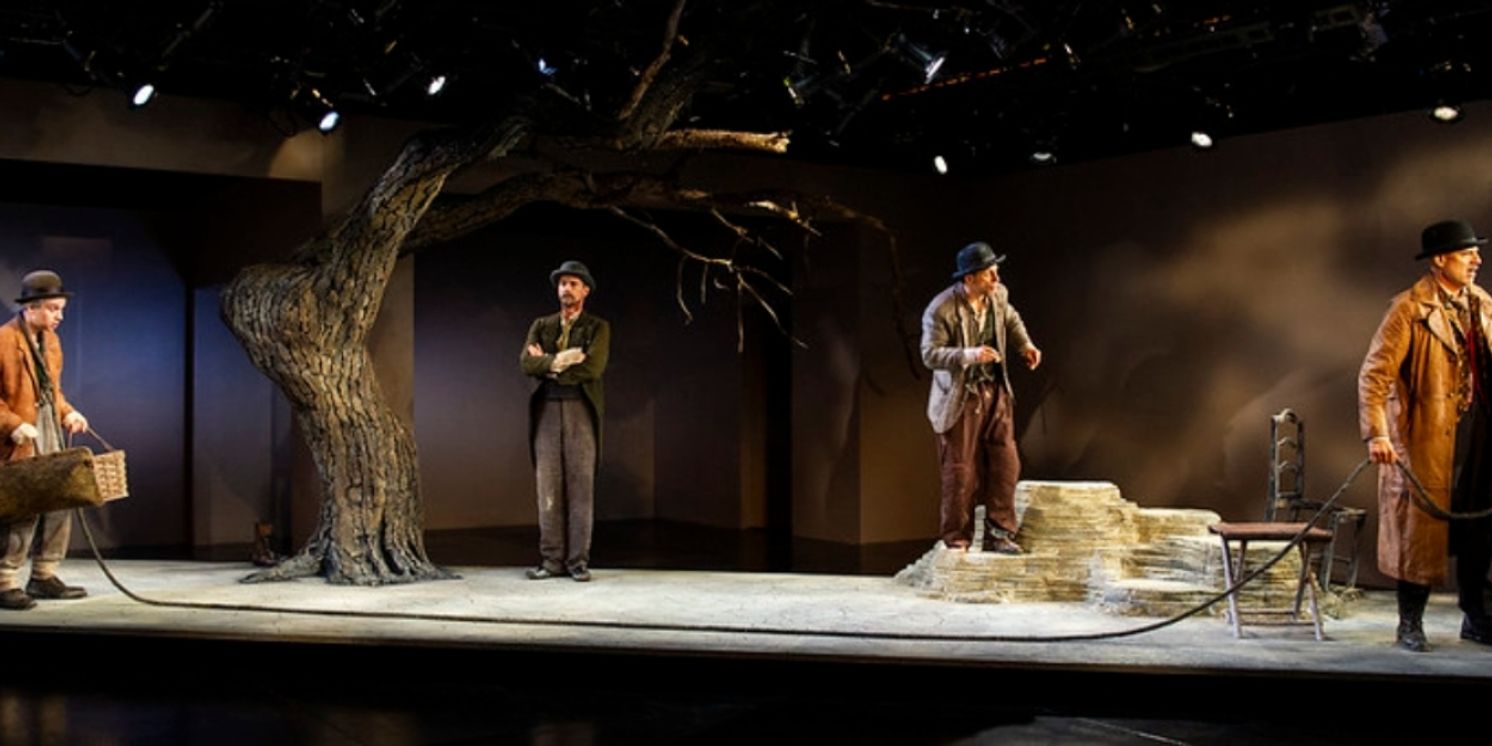
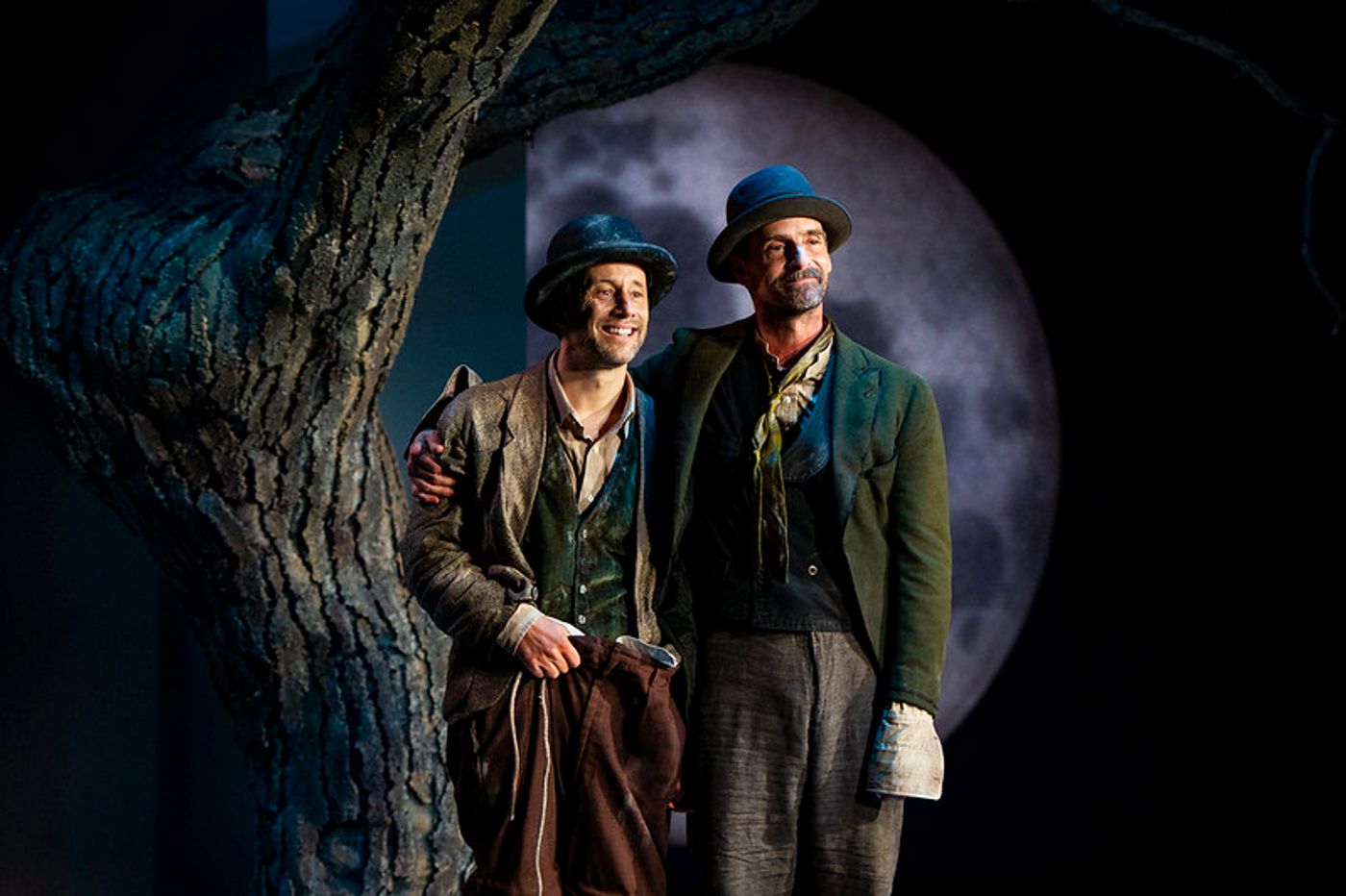
Photo: Daniel Rader
Vladimir and Estragon wait on a deserted country road to meet a person named Godot. Killing time with hat tricks and half-remembered stories, they dawdle through one of the greatest dramas of the 20th century. In Beckett's absurd, anarchic world, life is vaudeville and tragedy, philosophy and confusion, all seamlessly woven together with the playwright's masterful blend of poetry and humor.
Estragon notifies Vladimir of his most recent troubles: he's spent the previous night lying in a ditch and received a beating from a number of anonymous assailants. The two discuss a variety of issues at length, none of any apparent significance, and it is finally revealed that they are awaiting a man named Godot. They are not certain if they have ever met Godot, nor if he will even arrive.
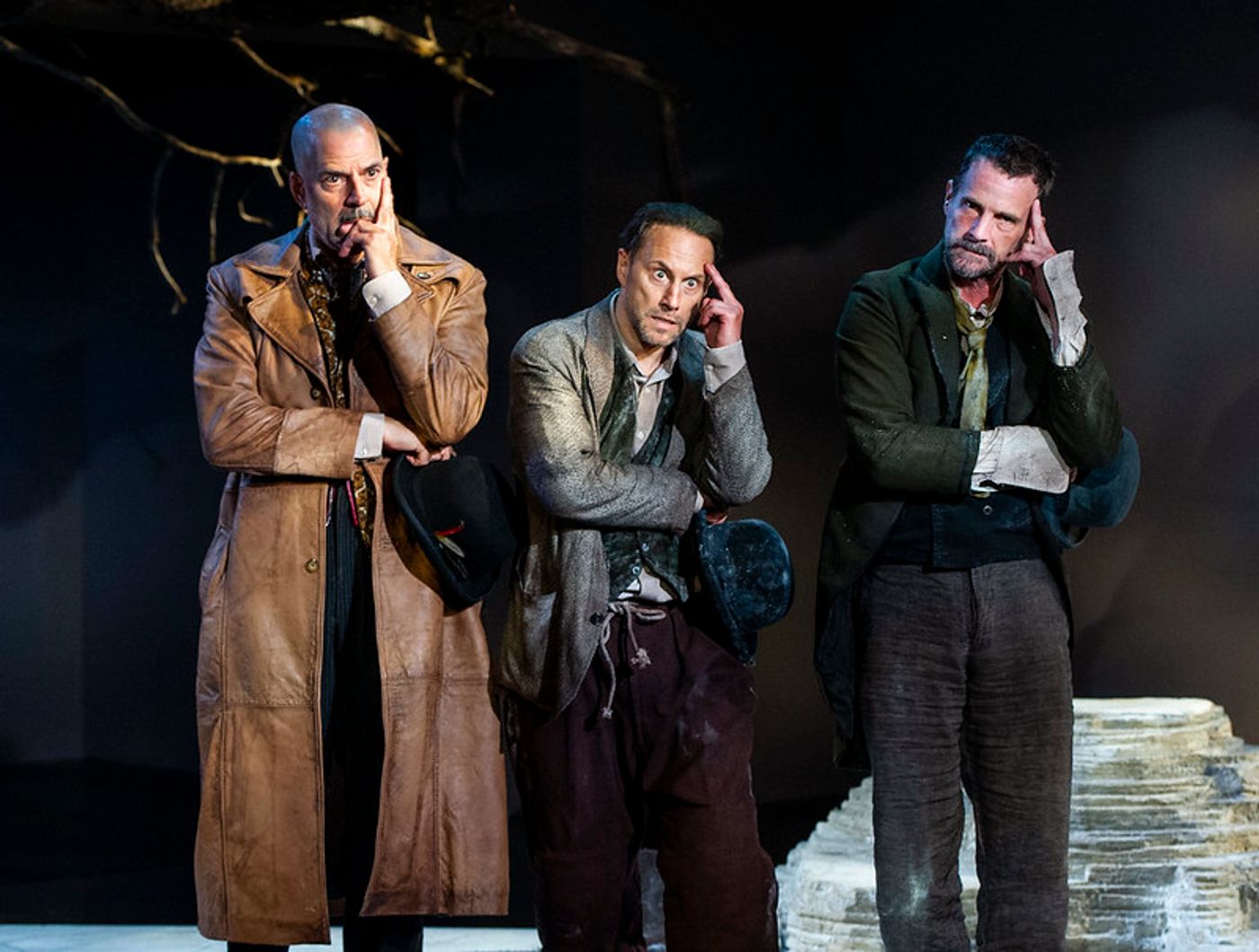
Photo: Daniel Rader
Subsequently, an imperious traveler named Pozzo, along with his silent slave Lucky, arrives and pauses to converse with Vladimir and Estragon. Lucky is bound by a rope held by Pozzo, who forces Lucky to carry his heavy bags and physically punishes him if he deems Lucky's movements too lethargic. Pozzo states that he is on the way to the market, at which he intends to sell Lucky for profit. Following Pozzo's command "Think!", the otherwise mute Lucky performs a sudden dance and monologue: a torrent of academic-sounding phrases mixed with pure nonsense. Pozzo and Lucky soon depart, leaving the bewildered Estragon and Vladimir to continue their wait for the absent Godot.
Eventually, a boy shows up and explains to Vladimir and Estragon that he is a messenger from Godot, and that Godot will not be arriving tonight, but surely tomorrow. Vladimir asks for descriptions of Godot, receiving only extremely brief or vague answers from the boy, who soon exits. Vladimir and Estragon then announce that they will also leave, but they remain onstage without moving.
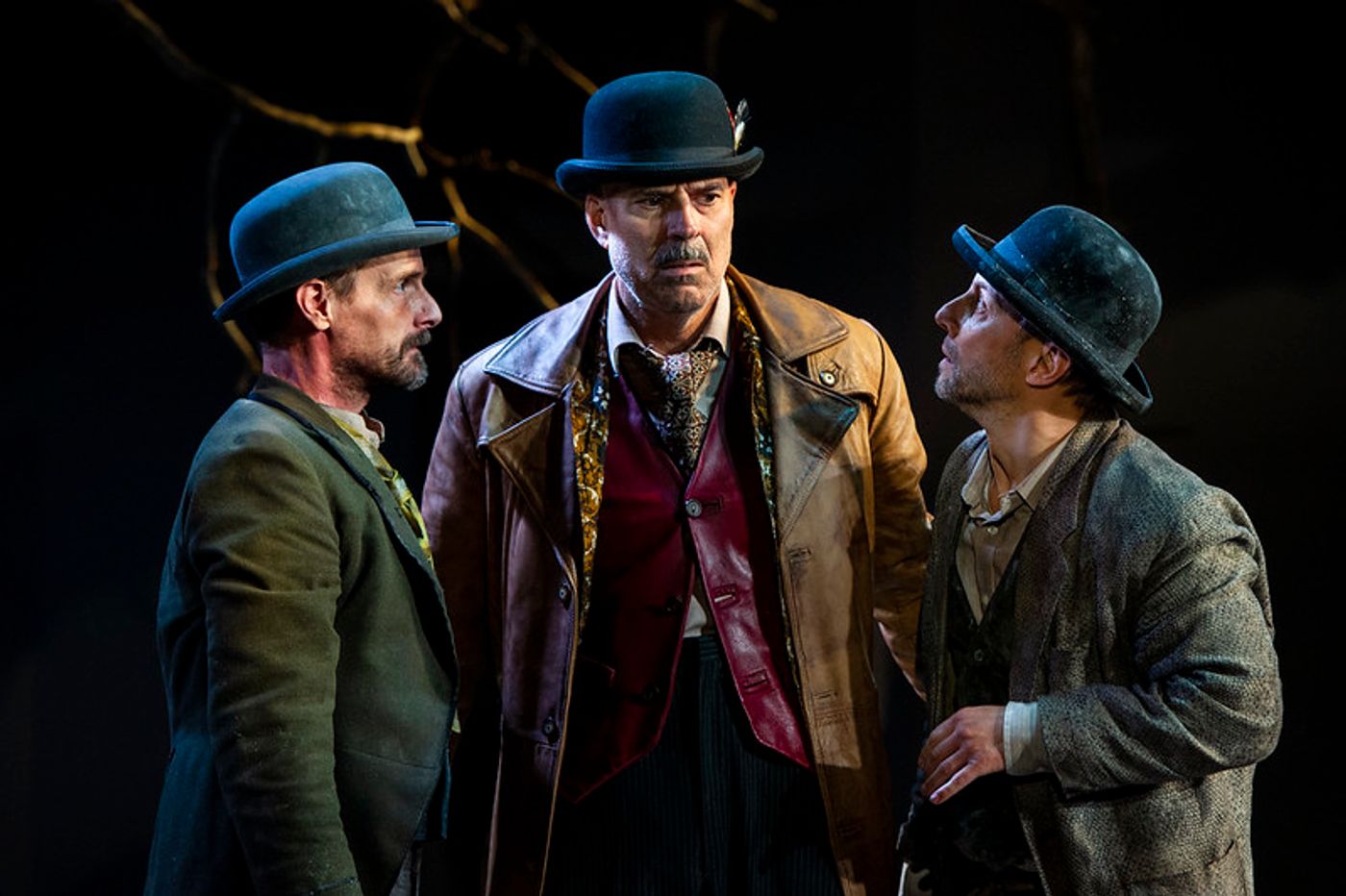
Photo: Daniel Rader
Vladimir and Estragon are again waiting near the tree, which has grown a number of leaves since it was last seen in Act 1. Both men are still awaiting Godot. Lucky and Pozzo eventually reappear, but not as they were previously. Pozzo has become blind and Lucky is now fully mute. Pozzo cannot recall ever having met Vladimir and Estragon, who themselves cannot agree on when they last saw the travelers. Lucky and Pozzo exit shortly after their spirited encounter, leaving Vladimir and Estragon to go on waiting.
Soon after, the boy reappears to report that Godot will not be coming. The boy states that he has not met Vladimir and Estragon before and he is not the same boy who talked to Vladimir yesterday, which causes Vladimir to burst into a rage at the child, demanding that the boy remember him the next day so as to avoid repeating this encounter once more. After the boy exits, Vladimir and Estragon consider suicide, but they do not have a rope with which to hang themselves. They decide to leave and return the day after with a rope, but again they merely remain motionless as the scene fades to black.
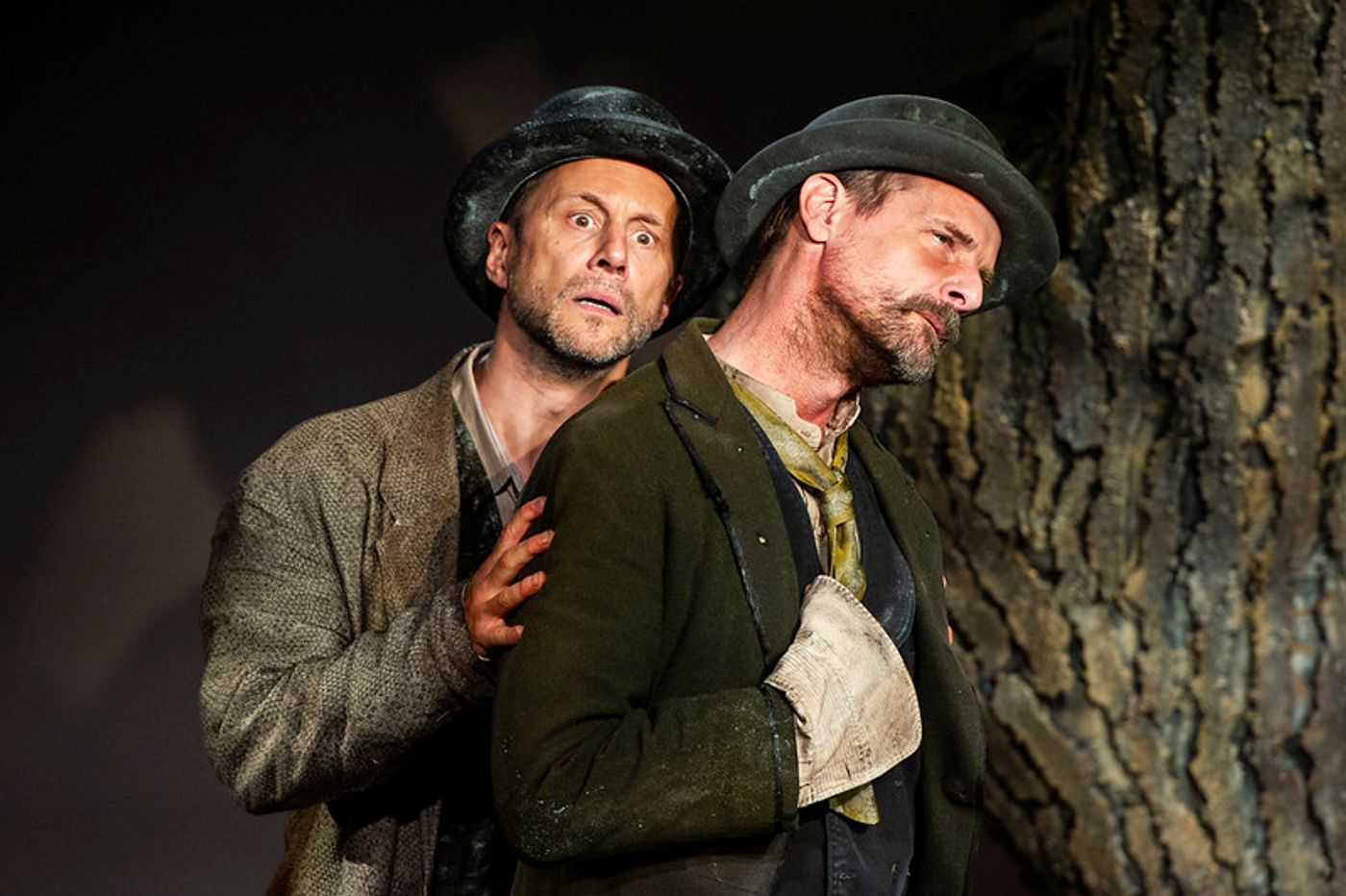
Photo: Daniel Rader
This production features Mark H. Dold as Vladamir "Didi", Christopher Innvar as Pozzo, Kevin Isola as Estragon "Gogo", Max Wolkowitz as Lucky, and Maximus Holey as A Boy. Beckett's script provides a wealth of all the elements to work with: plot, character, tension, language, and spectacle. All deliver top shelf level performances and appear to have total command, comfortability and understanding of their characters. The banter between Dold and Isola is both impressive and entertaining. Where most productions paint the duo as downtrodden and rather depressed, here the two main characters are painted with a sense of comedic timing and light-heartedness that almost seems choregraphed. A performance harkening back to some of the greatest comedic duos. The likes of Lewis and Martin, Abbott and Costello, Laurel and Hardy. Kevin Isola's facial expressions and physicality are endearing. They draw viewers in, particularly well and I found following his action quite enjoyable.
Director Joe Calarco appears to given his team both the freedom and encouragement in which to allow them to explore the characters completely and deliver exemplary level performance. The creative team is rounded out with Luciana Stecconi Scenic Designer, Debra Kim Sivigny Costume Designer, David Lander Lighting Designer, Nathan Leigh Sound Designer, and Anthony O. Bullock Production Stage Manager. Their individual efforts come together extremely well and provide the players a superb space in which to play with an approach that is as unique as it is efficient and effective.
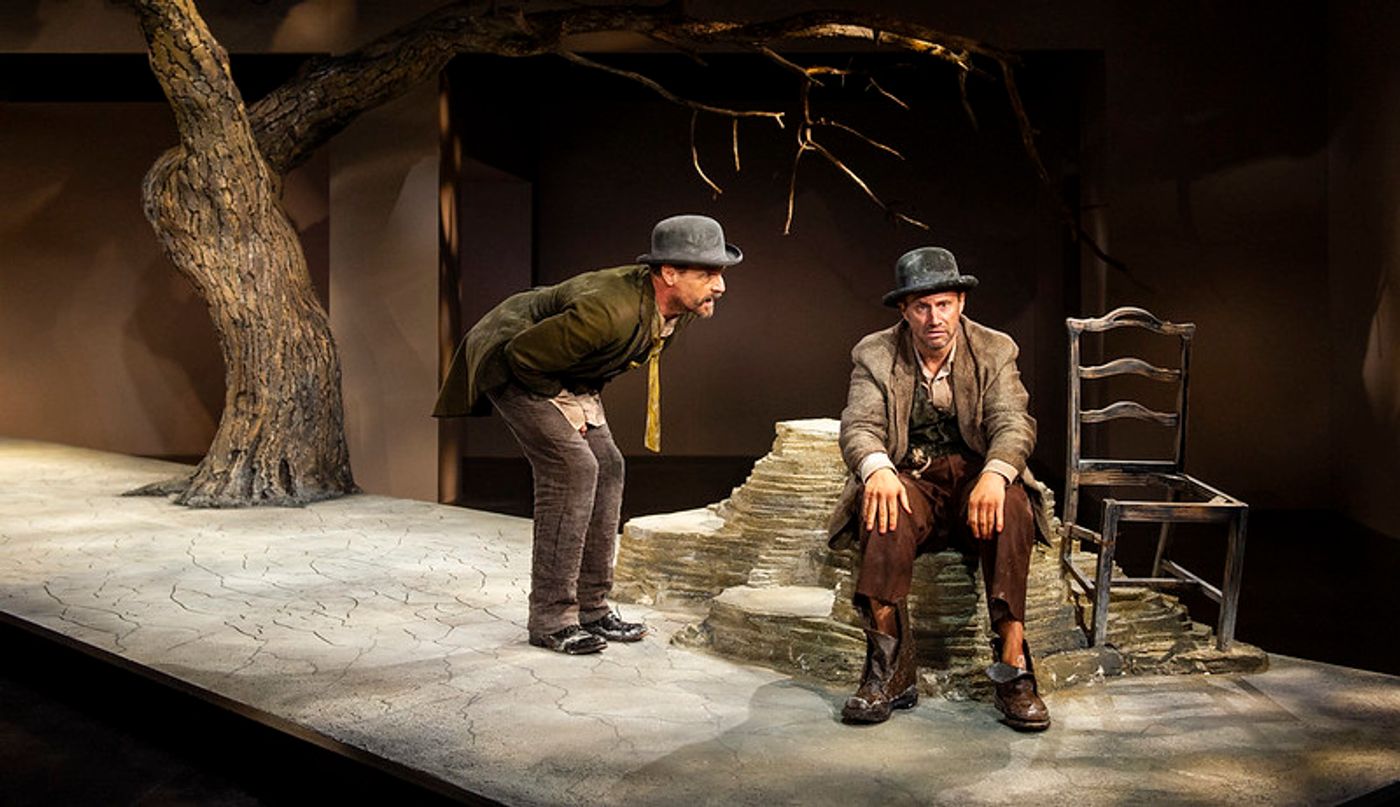
Photo: Daniel Rader
WAITING FOR GODOT is another production this season that Artistic Director at BSC, Julianne Boyd, has been waiting awhile to present. At a point when society seems to be questioning everything down to the gnat's eyelashes of detail as to what we do and why, this production of WAITING FOR GODOT proves to be extremely relevant, and well worth the wait. Performances continue on the St. Germain Stage at the Sydelle and Lee Blatt Performing Arts Center in Pittsfield through September 4th.
Reader Reviews
Videos

